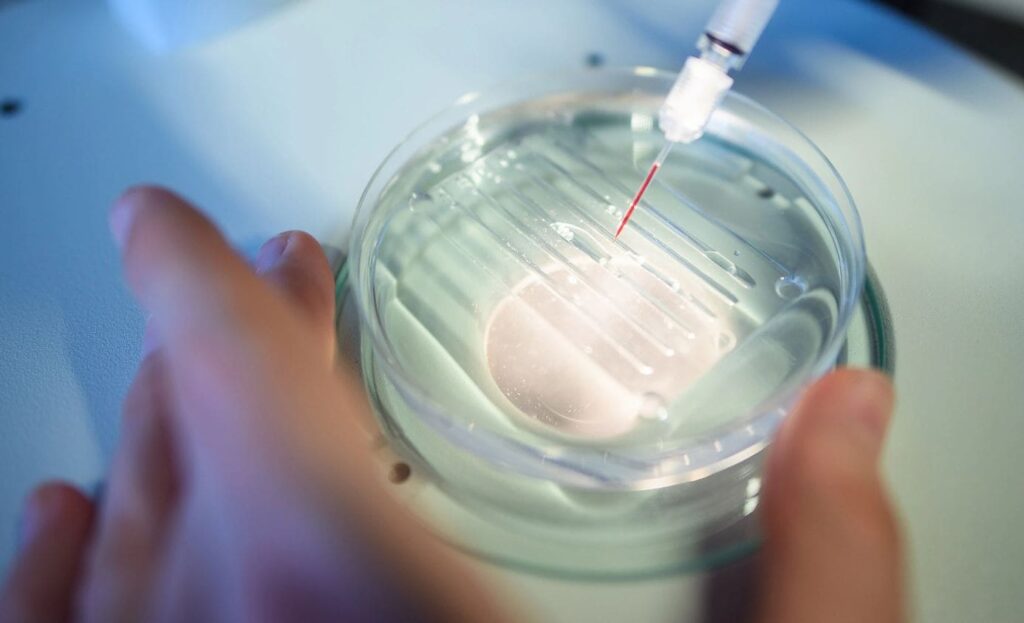Introduction
Ethical considerations are critical in the discussion, research, and utilization of gene editing (GE) interventions in humans. In science, these interventions are mainly aimed at infertility treatment and disease prevention. Since these approaches interfere with human nature through genetic alteration, ethical implications should be evaluated and implemented for interventions that compromise the essence of humanity. While GE aims to improve the quality of human life, it poses some ethical implications, including the misuse of genetic engineering technology, detrimental health risk factors, and social inequality due to enhanced humans.
Misappropriation of GE
A significant ethical consideration in GE is the misuse of deoxyribonucleic acid (DNA) enhancement engineering by unqualified individuals. One instance that portrayed the misappropriation of the technology was when He Jiankui, a Chinese biophysicist, was convicted to a three-year sentence due to the illegal practice of GE medicine after conducting DNA for post-implanted human embryos (Townsend 2). In this instance, an unqualified and unlicensed individual was able to utilize the clustered regularly interspaced short palindromic repeats (CRISPR) technology to unlawfully alter the human embryonic genome. There are also undefined standards and practices within the medical and research field on who should have access to DNA editing tools. In addition, the purpose and limits to which GE should be utilized in humans are not sufficiently defined, leaving room for manipulation and interference from unqualified individuals who can utilize it to cause harm to others. Therefore, the misuse of GE technology should be adequately addressed, as it can be wrongly utilized to compromise human DNA.

Risk Factors Associated With GE
The ethical utility of GE requires detailed comprehension of the negative medical implications. In germline genome editing (GGE) on human embryos, studies show the existence of off-target effects that lead to inaccurate editing causing irregular inversions, translocations, or significant deletions, leading to point mutations (Rubeis and Steger 135). Then, these mutations are passed on to future generations through compromised genetic traits. Furthermore, it is difficult to determine and understand the extent of the mutations and their effects on the health of future generations. Therefore, GE endeavors have negative medical implications that cannot be adequately appraised until human DNA is edited and compromised.
Human Inequality
GE applications also pose a risk that creates distinct social divides within the human race as a result of genetic enhancement. Since time immemorial, humans have utilized many tools at their disposal to ease and enhance the quality of their lives. For example, there are biohacking endeavors such as that by the Three Square Market, which was the pioneer company to implant employees with microchips to facilitate entrance into the building (Gangadharbatla 2). However, these innovations pose a threat to social equality due to the establishment of new tiers of enhanced individuals within the human race. GGE modifications of sex genes may lead to advanced mutations of humans in future generations that will tip the scale of societal and genetic equality in humanity.
Conclusion
GE poses ethical ramifications involving misappropriation of the technology, negative health implications as well as social structure imbalance. This technology requires robust ethical standards to ensure that the risks associated with it do not fatally outweigh the benefits on a moral and genetic scale. Risks associated with GE include detrimental health effects and conditions in future generations and rifts in social equality, calling for stringent measures to control the application of the technology. Thus, ethical frameworks in GE should be defined and standardized to prevent these negative implications in future applications.
Works Cited
Gangadharbatla, Harsha. “Biohacking: An Exploratory Study to Understand the Factors Influencing the Adoption of Embedded Technologies within the Human Body.” Heliyon, vol. 6, no. 5, May 2020, pp. 1–9, doi:10.1016/j.heliyon.2020.e03931.
Rubeis, Giovanni, and Florian Steger. “Risks and Benefits of Human Germline Genome Editing: An Ethical Analysis.” Asian Bioethics Review, vol. 10, no. 2, 2018, pp. 133–141, doi:10.1007/s41649-018-0056-x.
Townsend, Beverley A. “Human Genome Editing: How to Prevent Rogue Actors.” BMC Medical Ethics, vol. 21, no. 1, 2020, pp. 1–10, doi:10.1186/s12910-020-00527-w.


